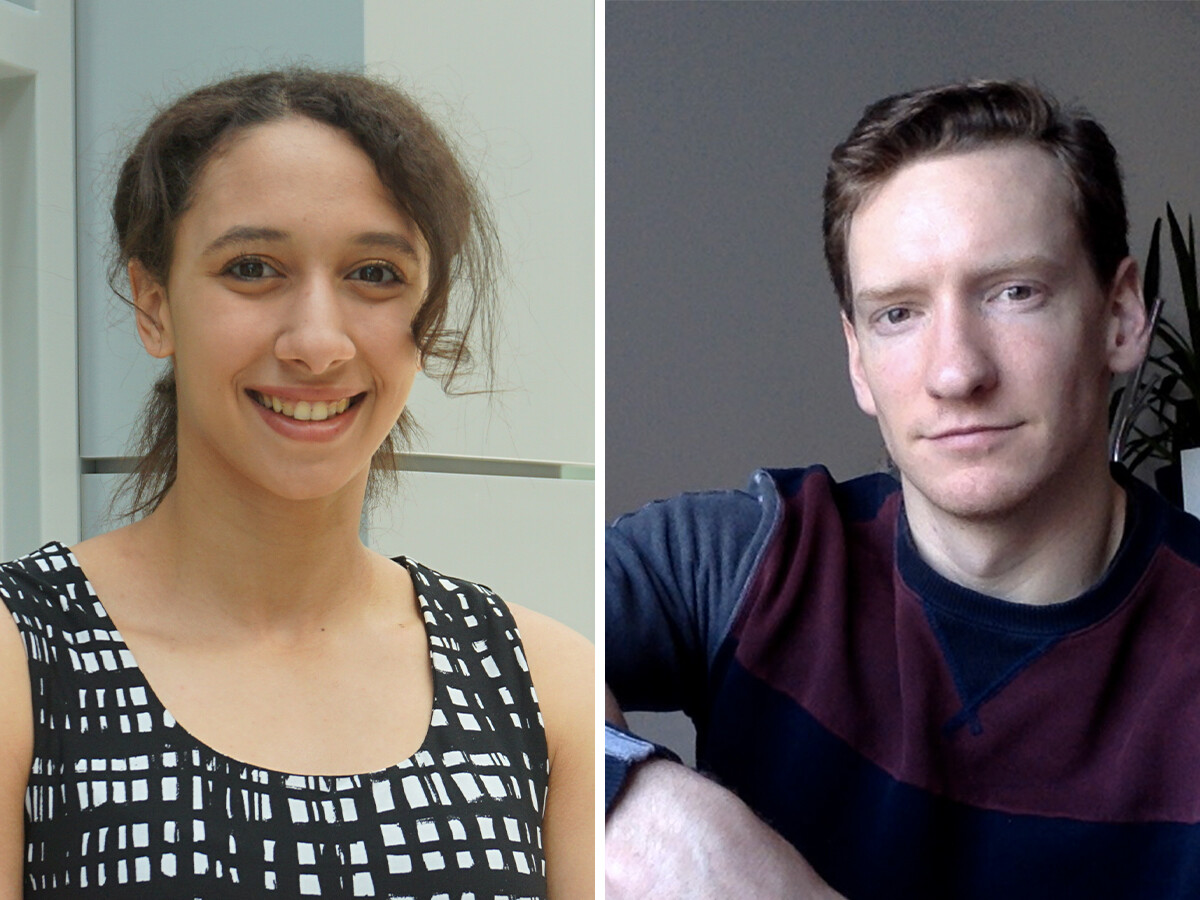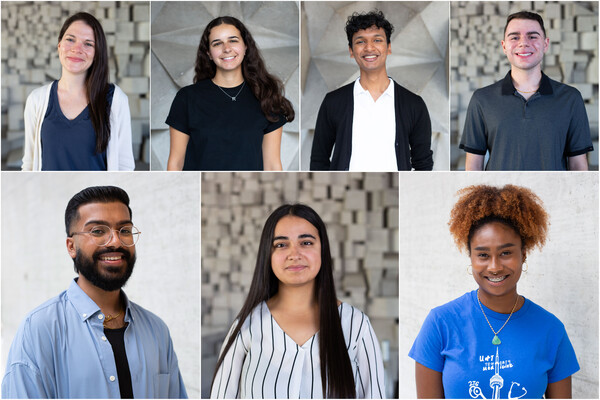
From helping at vaccination clinics to visiting seniors at risk of loneliness, medical students from the University of Toronto’s Temerty Faculty of Medicine are providing relief to community members during the COVID-19 pandemic.
Students such as Samiha Mohsen and Ryan Booth, who have been helping physicians and community agencies while gaining real-world insight into medicine and health care.
Mohsen and five of her classmates, as part of a co-operative, work-integrated learning program, help at a local health centre’s vaccination clinic, assisting physicians and staff in several ways.
Mohsen has worked with the clinic’s pharmacist to dilute vaccines and prepare vials and syringes. She also took on patient-facing roles such as helping patients book appointments and discharging them after their shots.
The first-year medical student says that in addition to providing an extra set of hands in a clinical environment during a public health crisis, she’s found it valuable to see how the clinic operates at various levels — and to observe firsthand some barriers faced by people seeking medical care.
One example of this, she notes, is technology.
When Mohsen was helping discharge patients following their vaccinations, patients were newly required to have enhanced vaccine certificates with a QR code for entry to some businesses and settings, including restaurants and events. Original paper vaccine certificates were no longer enough.
Similarly, although walk-in appointments had been available, the clinic began requiring patients to book appointments in advance, to keep up with demand when Ontario expanded third-dose eligibility.
But for some people, navigating online booking systems was a challenge.
“Many people such as older adults may not have access to a cell phone or a computer to use these kinds of tools easily. So, it was helpful to see how that impacted people, and how the clinic worked to support them and make sure they received the care they needed,” Mohsen says.
In addition to helping out in clinical environments, students are also lending a hand in community settings. Booth, who is also in the first year of the MD program, is part of a seniors outreach initiative that works to offer social opportunities to isolated older adults.
The activity is part of the MD program’s interprofessional education curriculum. Through the initiative, Booth works in a small team that includes learners specializing in speech-language pathology and pharmacy.
Booth and his fellow learners were connected to a local senior by a community agency.
During their visits, the group plays the word game Boggle and shares some laughs and stories about their lives.
Data from several studies, including the Canadian Longitudinal Study on Aging, shows loneliness is a significant risk factor for depression among middle aged people and seniors.
And COVID-19 has left people who feel isolated or marginalized more susceptible to the negative effects on their mental health.
Booth has a deep appreciation of the loneliness many seniors have faced during the pandemic. Before beginning medical school, he was involved in a similar program in Halifax that connected him to a married couple living in an assisted-living facility.
“Their dining room was closed, they couldn’t see their family or friends, the in-house entertainment was cancelled and they were encouraged not to leave,” says Booth. “The disruptions we’ve all experienced have been magnified for vulnerable populations, including older adults. Even at the best of times, social support may be diminished for this group, so it’s crucial to keep them connected.”

